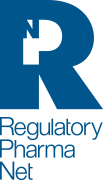On 11th March 2020, the World Health Organization (WHO) declared the COVID-19 outbreak a pandemic. Covid-19 Emergency has put a strain on most businesses. Despite the restrictions and obstacles, it is crucial that quality and regulatory groups continue to meet quality standards and remain compliant to the required legislation. The mitigation measures are taken to ensure the continued availability of medicines while making sure that good practice standards are being adhered to. This is achieved through proportionate approaches to verification of standards by enabling remote assessments of compliance.
Remote audits are not quite a new concept, even though in “normal” conditions the traditional on-site physical audits are the expectation from regulators and certification bodies. Decisions to either carry out a remote audit, or postpone an audit to a later ‘post COVID-19’ period, should be made through a risk-based approach considering the purpose and type of the audit, in line with guidelines on extraordinary events or circumstances affecting them. The feasibility of a remote audit must be assessed, and it must be performed on a case by case basis.
This approach has been followed also by Regulatory Authorities and specific guidelines are being issued. Indeed, in April 2020 EMA has published a guidance on regulatory expectations in the context of COVID-19 pandemic on measures to mitigate the impact of disruptions on the conduct of inspections in the European Union.
RPN has successfully supported companies in conducting remote audits as well as routine daily activities on the quality system. For more information on this service please do not hesitate to contact us.




